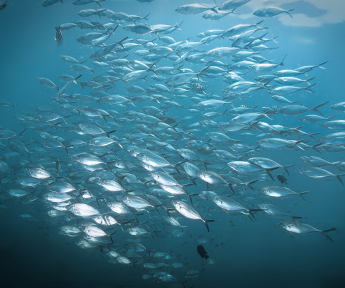Abstract
Recreational fisheries involve an intimate connection between people, individual fish, and the environment. Recreational fishers and their health crucially depend on healthy fish and ecosystems. Similarly, fish and ecosystems can be impacted by the activities of people including recreational fishers. Thus, amplified by the global interest in recreational fishing, we posit that recreational fishing is particularly suited as an empirical system to explore a One Health perspective, with a goal of creating pathways to better manage such socio-ecological systems for the benefit of people, fish, and the environment. Although zoonoses are uncommon in fishes, fish can carry pathogens, biotoxins, or contaminants that are harmful to people. When captured and released, fish can experience stress and injuries that may promote pathogen development. Similarly, when humans contribute to environmental degradation, not only are fish impacted but so are the humans that depend on them for nutrition, livelihoods, culture, and well-being. Failure to embrace the One Health perspective for recreational fisheries has the potential to negatively impact the health of fish, fisheries, people, society, and the aquatic environment—especially important since these complex social–ecological systems are undergoing rapid change.
Introduction
One Health has emerged as a framework of inquiry defined as “the collaborative efforts of multiple disciplines working locally, nationally, and globally, to attain optimal health for people, animals and the environment” (AVMA 2008). The One Health concept has its roots in the study of zoonotic disease, with the recognition that anthropogenic alterations to ecosystems often have the unintended consequence of accelerating pathogen transmission from people to animals (Evans and Leighton 2014). One Health gained recent attention in this regard with the COVID-19 pandemic because of the zoonotic origin of severe acute respiratory syndrome coronavirus 2 (SARS-CoV-2), which was likely catalysed by anthropogenically altered interactions among humans, animals, and the bats from which SARS-CoV-2 emerged (El Zowalty and Järhult 2020; Ruckert et al. 2020). The One Health concept has been widely embraced in a number of other realms, including livestock production (Sherman 2010), wildlife management and conservation (Buttke et al. 2015), human medicine (Zinsstag et al. 2011), and veterinary medicine (Destoumieux-Garzón et al. 2018). In 2022, the World Health Organization, the Food and Agriculture Organization, the World Organisation for Animal Health, and the United Nations Environment Programme developed a One Health Joint Plan of Action together. One Health has become a much broader framework for the laudable goal of improving animal, human, and ecosystem health simultaneously (and acknowledging them as being of equal importance; Evans and Leighton 2014), and for that reason, it can be applied to nearly any system in which these triadic interactions occur.
In this essay, we present a One Health perspective for recreational fisheries. We believe the recreational fishing sector and its associated activities can constitute a leading case for organizing interdisciplinary inquiry around the health of animals, humans, and ecosystems (Fig. 1). We posit that recreational fishing is particularly suited as an empirical system to explore One Health because of the global popularity of the activity. Recreational fishers and their health crucially depend on healthy natural ecosystems. Therefore, ecosystem health is an instrumental, yet threatened, component of healthy recreational fisheries and for the psychological, mental, and nutritional health benefits that recreational fishing brings to people.


